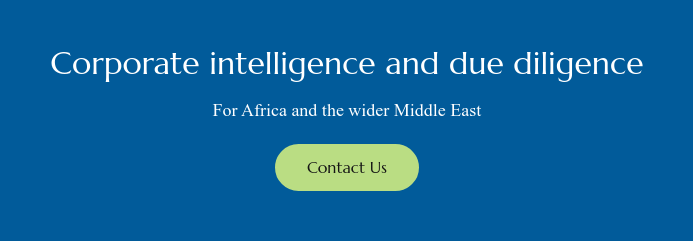How the Validation Agent role can help bring greater transparency, trust and confidence to the Middle East and Africa
Read moreIdentity with Clarity: the factors driving growth in the global adoption of LEI
Earlier this year the Global LEI Foundation announced that over 2 million active LEIs are now in circulation, a significant milestone in the worldwide adoption of the transparency initiative first introduced by the G20 and the Financial Stability Board (FSB) in 2012. Some of the fastest growth in the issuance of LEIs is happening in one of Diligencia’s busiest jurisdictions, namely Saudi Arabia, where the number of LEIs increased by over 40% in Q2 this year alone, albeit from a low base. The uptake is being driven by a coordinated effort between the Saudi Central Bank and the Saudi Credit Bureau (SIMAH) which is authorised by GLEIF to issue LEIs within the Kingdom as a local operating unit (LOU).
These numbers and trends bring into focus the factors that are driving the growth in LEI adoption. As with any regulatory initiative, true success depends on a range of ‘push’ and ‘pull’ factors that in turn both encourage participants to comply with a set of requirements while at the same time making clear the benefits that their involvement brings.
In the case of the LEI, the push factors are steadily gaining traction with the various regulators; there are now nearly 300 national, regional and global regulations that mandate or recommend the use of LEIs in regulatory reporting. The US Securities and Exchange Commission (SEC) has recently proposed to include the LEI as a standard requirement for institutions and funds reporting on a range of issues from ESG performance to short-selling positions. In parallel, authorities from Mexico to Hong Kong1 are mandating the use of the LEI for various activities, such as cross-border payments, statutory reporting and participation in specialised derivatives markets. At the same time the Financial Stability Board released in July 2022 a report containing a number of recommendations that can certainly be considered ‘push’ factors. These include working with the relevant standard-setting bodies – such as the Basel Committee on Banking Supervision (BCBS) and the Financial Action Task Force (FATF) – to embed the LEI into their activities and thereby harness these organisations’ (considerable) influence to promote its use.
The theory is that if these ‘push’ factors combine to create enough momentum, that in itself becomes a ‘pull’ factor as entities and funds see the incentive of joining their peers – and of not being left behind. Whether that critical mass has yet been reached – 2 million LEIs represent just a fraction of the total number of registered entities in the globe – is a moot point. This is why the FSB and GLEIF are just as keen to emphasise the benefits of voluntary adoption of the LEI; happily these are plentiful and in tune with a rising awareness among the private sector of the costs and inefficiencies associated with financial crime and lack of transparency more generally. To highlight just a few:
- Reducing costs of cross-border payments – the use of a single entity identifier can facilitate straight through processing (STP) of payments and increase the speed of transactions. GLEIF has been working together with global financial messaging provider SWIFT for some time and recently announced that it had mapped its Market Identifier Code (MIC) to the LEI.
- Faster, more efficient CDD – with the various structures and formats of entity numbers and references used across multiple jurisdictions (some countries, such as the UAE, have multiple systems in use concurrently) an LEI offers a single, consistent identifier that refers to a common source of accessible data. In the context of KYC and customer due diligence (CDD), this is appealing to both suppliers and buyers.
- Fraud prevention – an October 2022 report by the International Chamber of Commerce, entitled ‘Shutting Fraudsters out of Trade’2 listed use of the LEI as a key weapon against fraudulent activity such as vendor impersonation and trade finance fraud.
- Commitment to transparency – for an organisation to register and use an LEI sends a powerful message that it is committed to high standards of professionalism in how it interacts with customers and third parties. Just as ISO standards have become a way for companies to build brand credibility, we expect the LEI to drive a network effect of increased transparency in relationships and transactions.
The last point in particular was a strong motivator for Diligencia towards wanting to participate in the LEI initiative. Those who are not new to Diligencia will know our strong belief is that clear business information will facilitate change and foster progress in the regions we serve. By working together with GLEIF and our issuing partner Ubisecure in our new capacity as an LEI Validation Agent, we look forward to contributing to the successful growth of the LEI across the jurisdictions of Africa and the wider Middle East.
Diligencia provides corporate intelligence and due diligence solutions for emerging markets across Africa and the wider Middle East. Our vision is to deliver clarity, inform opinions and enable decision-making for clients in jurisdictions often poorly served by accurate public domain information.
In November 2022 we were appointed by GLEIF as a Validation Agent to verify the entity data required as part of the LEI application process and we are thrilled to be working in partnership with Ubisecure to streamline LEI issuance for companies across the MEA region.
READ ALSO
GLEIF Expands Global Footprint of Validation Agents with Sparkasse Bank Malta plc and Diligencia
LEIs and their value to regulatory compliance
Identity crisis? LEIs and their role in promoting clarity and compliance
FOOTNOTES
- A useful reference for the regulatory use of the LEI is provided by GLEIF
- Shutting fraudsters out of trade

